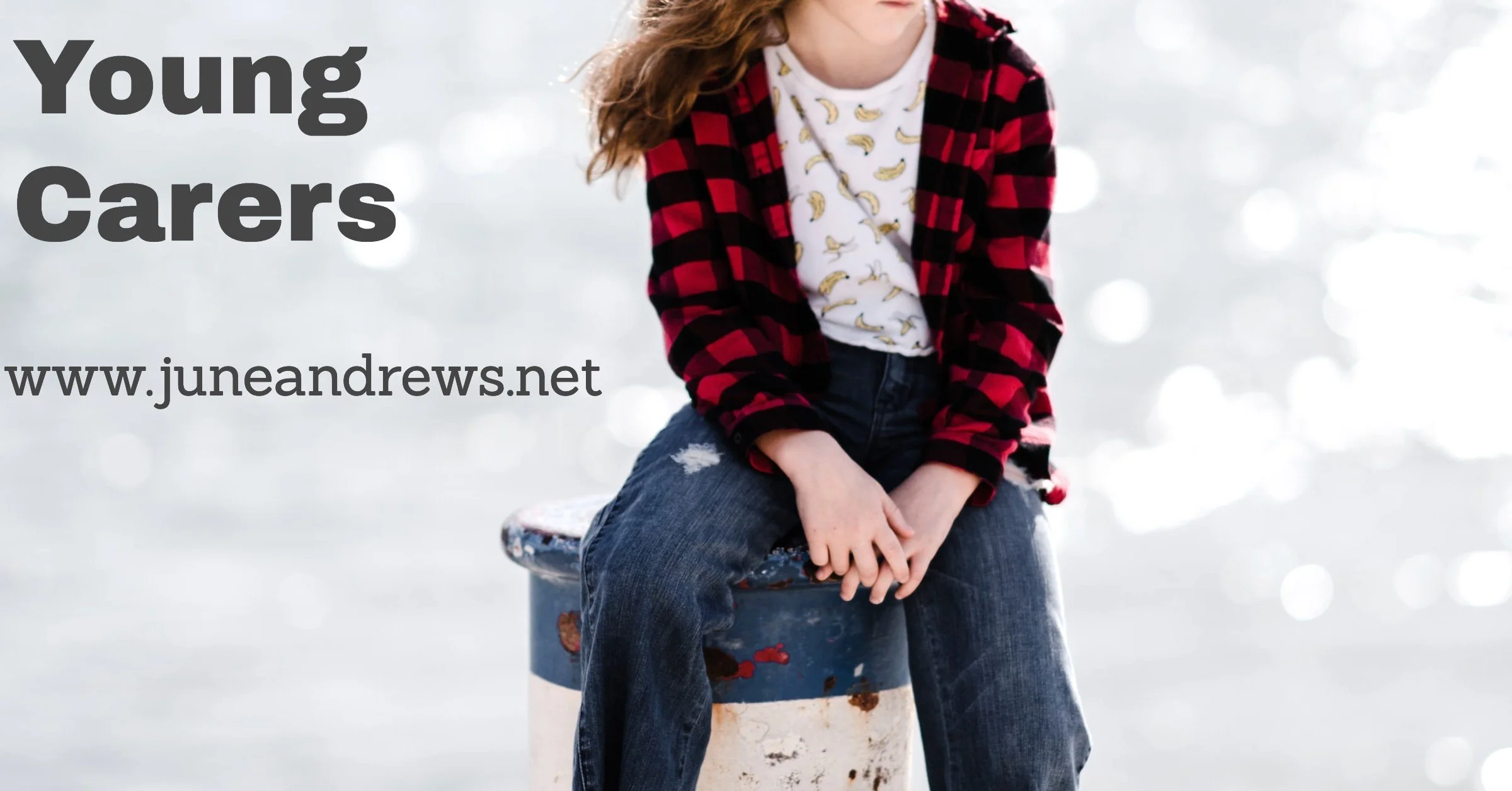Y is for Young Carers
In the A to Z run up to publication of my new book Carers and Caring; the One Stop Guide; how to care for older relatives and friends I am sharing some practical solutions learned from research and experience. Today is Y for Young carers. If you think any problems have been missed you can email me and tell me, and I’ll make sure they are covered in the next edition and online on my website at www.juneandrews.net.
If you are reading this as a young carer yourself, the strongest advice I can give you is this. Ask for help. The person you are caring for is not completely your responsibility. If they are an adult, they have responsibility for themselves, and the health and social care system has responsibility for both of you. A teacher is a good person to talk to about concerns because they can get you extra help with lessons. Your future depends on your education. Other young people at school or college may not understand the pressure that you are under, but good friends will appreciate what you are going through and talking with them often helps. The school might be able to give you support to keep in touch with the person you care for during the school day, for example letting you keep your phone on and allowing you to respond to calls. Most importantly, you need to ask the doctor, nurse or social worker whose job it is to help the person you are looking after to organise more formal support at home, to free you up to do your school, college or university work.
You may not realise you are a carer
As with adult carers, you may not realise that you are a carer. It could be something that you started at a very young age, and you don’t know any different. It could have happened overnight, for example if your parent had an accident or sudden illness and you had to take over their responsibilities, including caring for a grandparent. Even if you really want to help your family, you should not be working in the same way that adult carers do. You need to focus on school and further education and be free to do things that other people do at your age. It should be a matter of choice whether you do any caring. It is not just about whether you are willing. You may be the wrong person to be doing that caring. Because people with a disability or illness are entitled to support from health and social services, they should not have to rely on children.
Other school staff, such as counsellors or the school nurse, should be able to help. If you are missing lessons or not able to complete your homework and assignments they need to give you more support. School should be a place where you can just be like anyone else and forget about any problems at home. They can’t understand if they don’t know the pressure you are under. If you really don’t want your school to know what is happening for you, you don’t have to tell them. The problem then is that they can’t make any adjustments for you. Is there one teacher that you feel you can confide in? It is always easier to talk about things if you make a list of what you want to say, and that could include a list of all the tasks you have to do. It would be good if someone in the family could write to the school on your behalf.
How other people treat you matters
How other young people at school respond can be a problem. When people deliberately leave you out of activities or groups, that is bullying. Often we think of bullying as being called names, being physically attacked or threatened. But there are more subtle ways to make you feel bad about being different because of the caring pressures you are under. Of course, some people are bullied for no obvious reason, and most young people have been bullied at some point. However, you already have enough on your plate, so remember that there is support for you. It is totally understandable if you don’t want to go to school because of bullying. Your feelings are valid. It’s important to talk to an adult about it. There are organisations which have been set up for you to talk about the whole range of things you are dealing with. But getting an education is so important.
There is a section for young carers at the end of Carers and Caring in Useful Contacts and Resources listing organisations that are there for young people and children. They may be able to tell you about local young carers’ projects in your area. These can help you to meet up with other young carers. Apart from making new friends, it is a good way to have fun with people who have similar worries and challenges. You won’t feel judged. Many of the projects can arrange for you to have a break from home and help you to relax. This may be at an evening club, days out and weekend or holiday breaks. They may also offer advice that will help you and your family. Ask your local library or school library to get you a copy of the book, and tell you about other resources.
Three hints
You may be willing to help but others must take responsibility
You can’t get help if you keep caring a secret
Everyone else has a responsibility to let you get the best education and childhood experiences available, so let them know and support you.

